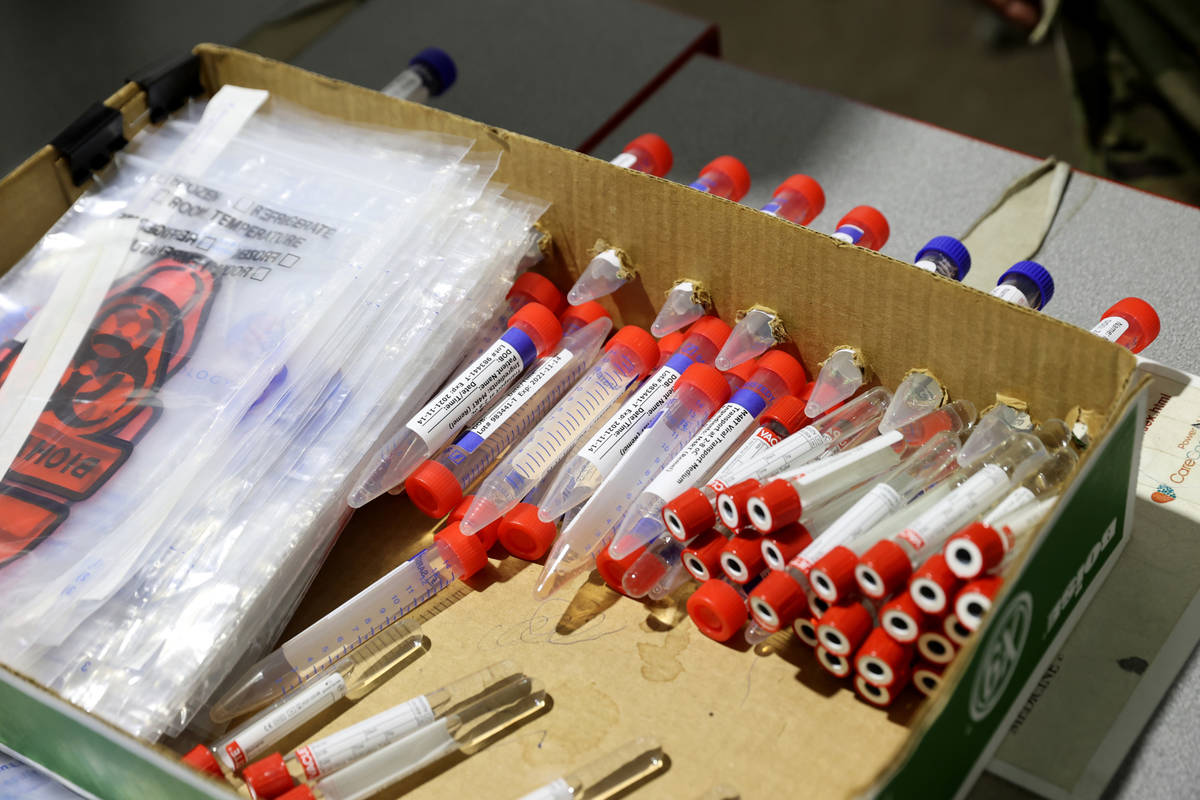Feds tell Nevada to reverse ban on 2 COVID-19 tests

CARSON CITY — Federal health authorities are telling Nevada to reverse course on the state’s recent decision to ban two types of rapid COVID-19 tests used in nursing homes, saying the state’s determination that the tests weren’t accurate enough was itself faulty.
Late Friday, the state’s chief medical officer said state health officials were “very disappointed” with federal government’s position but that the state would rescind the directive as instructed.
In a statement, Dr. Ihsan Azzam asserted the state’s intention had been to protect “the most vulnerable in our communities from COVID-19.”
Briefing reporters on a press call in Washington, D.C., Friday, Brett Giroir, assistant secretary at the U.S. Department of Health and Human Services, said the decision by Nevada officials “can only be interpreted as reflecting a fundamental lack of basic knowledge about testing and interpreting results.”
Nevada banned the antigen testers Quidel Sofia and BD Veritor on Oct. 2, saying they were “accurate for detecting individuals with COVID-19, but less accurate for correctly detecting when someone does not have COVID-19,” according to the advisory issued by the state Department of Health & Human Services.
Anecdotal reports from 12 nursing facilities in the state showed problems with the tests, including one report that found 60 percent of positive antigen tests were false.
State health officials attributed the problems to inadequate training by people administering the tests, failure to follow the manufacturers’ instructions, or failure to confirm the result with another test within 48 hours.
In Washington Friday, Giroir said Nevada is prohibited by federal law from imposing the ban. He acknowledged there’s “no perfect test” but said false positives are inevitable in virus screening and that identifying 40 percent of real positives would save lives in nursing homes.
While rescinding the early directive, Issan defended the decision. The state will continue to evaluate and investigate the result discrepancies.
“We all need to understand why there is a discrepancy in results,” he said. “It could be the actual test, it could be the collection of the specimen, or it could be related to the process itself. Regardless, we need to better understand the issue before encouraging mass use of such tools among our most vulnerable citizens.”
As of Friday, the state had tallied 2,312 COVID-19 cases in 54 skilled nursing facilities, with 217 deaths, 212 of them residents. Nearly 1,500 people have recovered, 742 residents and 737 staff.
The disease is far more lethal for older people. In Nevada, those older than 60 represent about 14.5 percent of the more than 84,000 cases reported as of Friday but 80 percent of the 1,657 deaths.
Contact Capital Bureau reporter Bill Dentzer at bdentzer@reviewjournal.com. Follow @DentzerNews on Twitter.